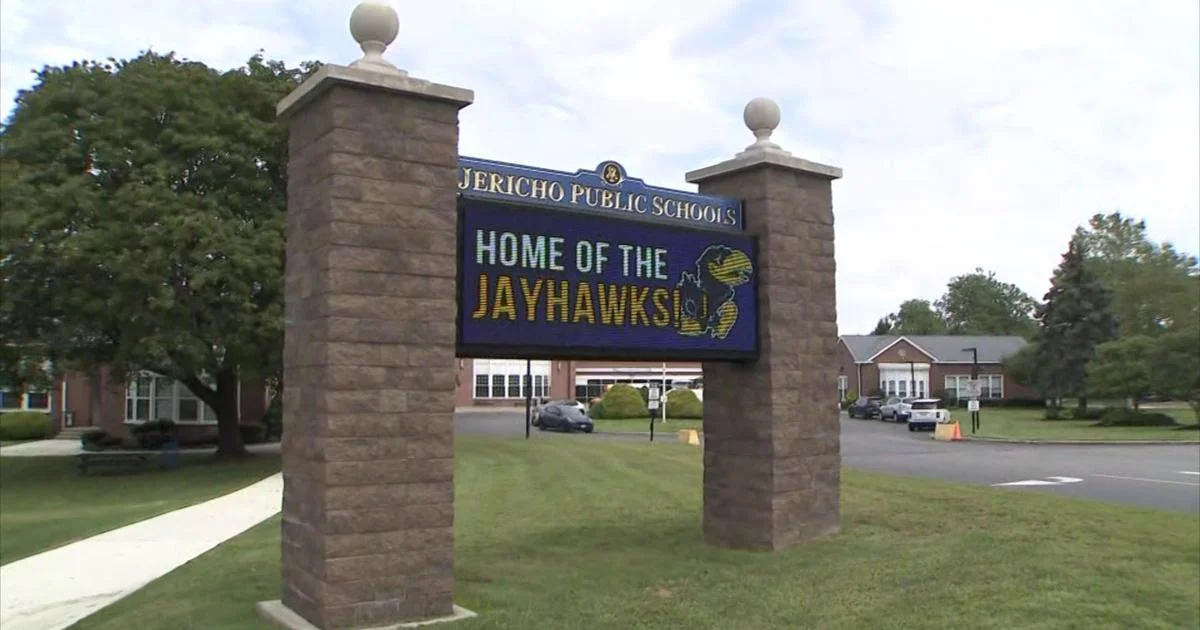In recent weeks, a proposal has emerged to rename Cantiague Elementary School to Henry L. Grishman Elementary School, honoring the retiring superintendent of Jericho School District. While Mr. Grishman’s three-decade tenure has certainly left its mark on the district, this proposal raises serious questions about the standards, timing, and precedent for school naming decisions. This analysis examines why such a premature renaming might be problematic and explores broader considerations in school naming practices.
The Financial Context: Public Service vs. Paid Professional Position
First, let’s address an uncomfortable but necessary truth: school superintendency is a well-compensated professional position, not a philanthropic endeavor. Based on recent salary data from 2020-2023, Mr. Grishman’s compensation averaged $357,097.72 annually. A conservative estimate suggests total compensation over his 30-year tenure approaching $10.7 million, adjusted to recent salary levels.
This isn’t to diminish Mr. Grishman’s contributions – he was fairly compensated for his professional services. However, it raises a crucial question: Should we name public institutions after individuals who were already well-compensated for their work? Traditionally, schools are named after:
- Historical figures who made significant unpaid contributions to society
- Local community members who donated land or substantial resources
- Individuals who performed extraordinary public service beyond their paid duties
- People whose contributions can be evaluated with a historical perspective
Traditional School Naming Practices
Historical research shows that school naming decisions typically follow several established patterns:
Waiting Periods
Most districts implement mandatory waiting periods (often 5-10 years) before naming facilities after former employees or public figures. This allows time for:
- Objective evaluation of long-term impact
- Community perspective to develop beyond immediate emotions
- Potential controversies or new information to surface
- Historical context to be properly assessed
Community Impact Beyond Job Description
Schools named after educators typically honor those who went far beyond their job descriptions, often continuing their community service long after retirement. The bar is particularly high for administrators, as their positions already come with significant compensation and authority.
Perpetuity Considerations
School names are essentially permanent honors that will affect generations of students. This permanence demands rigorous vetting and broad community consensus, not just support from current stakeholders who may have personal connections to the honoree.
The Problems with Premature Naming
1. Lack of Historical Perspective
Mr. Grishman hasn’t yet completed his tenure, let alone provided time for historical evaluation of his impact. While his tenure shows numerous achievements, proper assessment requires:
- Long-term outcomes of initiatives
- Comparative analysis with peer districts
- Assessment of lasting structural changes
- Evidence of impact beyond standard job expectations
2. Precedent Setting
Naming a school after a recently retired superintendent sets a problematic precedent:
- It could create pressure to similarly honor future superintendents
- It might diminish the significance of school naming as a honor
- It could create awkward situations if future controversies emerge
- It might discourage consideration of other worthy honorees
3. Compensation vs. Contribution
The financial context matters. Over 30 years, Mr. Grishman received:
- Annual salaries exceeding $350,000 in recent years
- Comprehensive benefits typical of superintendent positions
- Professional recognition and career advancement opportunities
This compensation package, while appropriate for the position, emphasizes that this was a professional role, not a voluntary service to the community.
Alternative Approaches to Recognition
Instead of immediate school renaming, districts often consider more appropriate ways to honor retiring administrators:
- Creating scholarship funds in their name
- Dedicating specific facilities (auditoriums, libraries) after an appropriate waiting period
- Establishing educational programs or initiatives that reflect their values
- Creating annual awards or recognition programs that carry their name
The Role of Names in School Identity
School names serve multiple purposes:
- Creating community identity
- Reflecting local history and values
- Inspiring students through positive role models
- Maintaining connections to community heritage
Cantiague Elementary School’s current name carries its own historical significance and community recognition. Changing it requires careful consideration of:
- Historical context and community heritage
- Impact on school identity and recognition
- Long-term relevance to future generations
- Broader community values and priorities
Recommendations
1. Implement a Waiting Period
- Establish a minimum 5-year waiting period for naming considerations
- Develop clear criteria for evaluation and community input
- Create a transparent process for naming proposals
2. Broaden the Consideration Pool
- Research other significant contributors to local education
- Consider historically underrepresented groups
- Evaluate alternative ways to honor recent retirees
3. Enhance Community Involvement
- Conduct broad community surveys
- Create opportunities for public discussion
- Consider student and alumni input
- Evaluate long-term community impact
Conclusion
While Henry L. Grishman’s contributions to the Jericho School District are significant, the immediate renaming of Cantiague Elementary School would be premature and potentially problematic. His legacy deserves thoughtful consideration and appropriate recognition, but this should come after careful evaluation and community deliberation, not as an immediate response to his retirement.
The district would be better served by:
- Maintaining appropriate professional boundaries between paid service and honorary recognition
- Establishing clear, consistent policies for facility naming
- Creating alternative ways to honor retiring administrators
- Preserving historical perspective in naming decisions
Public institutions’ names should reflect carefully considered, long-term community values rather than immediate emotional responses or current political dynamics. The proper honoring of Mr. Grishman’s legacy deserves more time, thought, and community input than a hasty renaming decision would allow.


